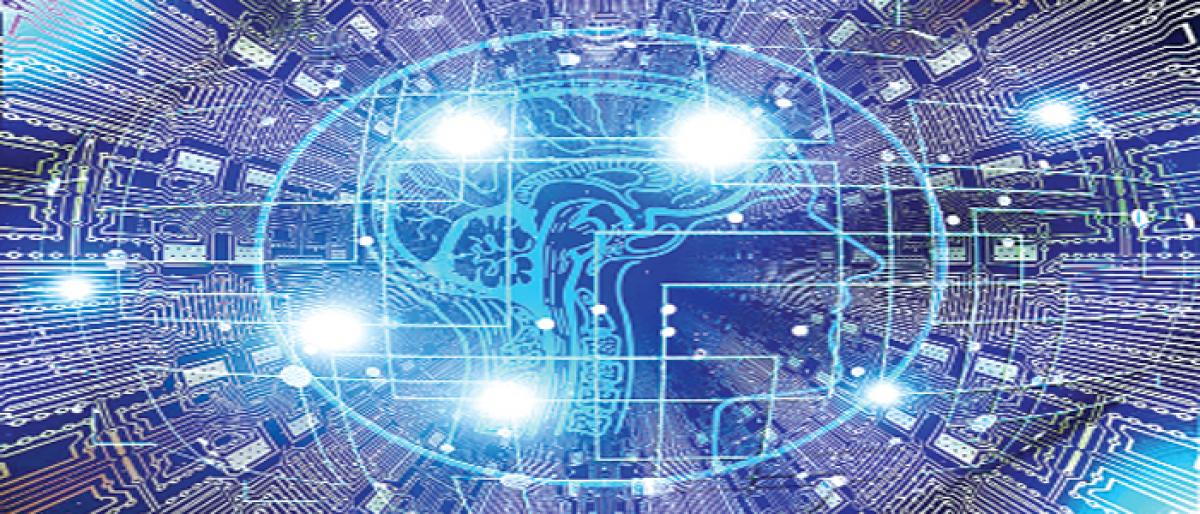Mind, matter and Artificial Intelligence

The 20th Century ended with chimes of the spread of a new revolution Information Technology IT and Internet took control of the world Immense possibilities opened up, a sense of new perfection came to workplaces, theres speedy resolution of complex mathematical and other problems, and excellence remained as the byword for fresh forays by IT into various new and unexplored fields With this as
The 20th Century ended with chimes of the spread of a new revolution. Information Technology (IT) and Internet took control of the world. Immense possibilities opened up, a sense of new perfection came to workplaces, there’s speedy resolution of complex mathematical and other problems, and excellence remained as the byword for fresh forays by IT into various new and unexplored fields. With this as the base, a stage has been set wherein Artificial Intelligence (AI) is the new tech mantra.
Artificial Intelligence, in short, is a scientific way of programming computers to do what human mind does, like having the power to think and take decisions quickly. Making machines have a mind of their own is a scientific task involving use of simple algorithms and pre-defined patterns. Its successes, though long-awaited and hard-earned, are for real. AI is today increasingly being used in myriad applications, and they are certified to perform better and faster than the human mind.
China, a late entrant into the field, has made a major mark. It has both surprised and mesmerised the world with introduction of AI in news presentation at television studios. Qiu Hao, the digital version of a news anchor, presented news for Xinhua from studio, wearing a predictable red tie, presenting the right emotions and laying emphasis at right places of news-reading, making it an impressive experience for the audience. More than aspects like saving costs, technology is overtaking man in surprisingly new ways. The Fourth Industrial Revolution, guided largely by AI, will be worth a watch.
Decades of efforts went into the evolution of Artificial Intelligence – initially also raising ethical questions and comparisons of a Dr Frankenstein Monster being in the making. Year 1997 was a turning point. After the initial pessimism that marked the evolution of AI, its effect came in a spectacular manner. A computer-induced chess playing system by name Deep Blue floored reigning world chess champion, Garry Kasparov – marking a major victory of artificial intelligence over human intelligence.
The path to AI’s success was paved with thorns. Funding for Artificial Intelligence – which first came from the US Defence some 70 years ago and then from some others including the UK – dried up often as the initial enthusiasm could not be sustained. Not much headway was made by researchers who faced technical hitches.
Researchers didn’t give up their efforts. though. Minor breakthroughs now and then kept their spirits high. The first spectacular success was Deep Blue. Funding got revived and the research got a new fillip thereafter. By year 2011, more remarkable successes of the kind were reported. For one, IBM’s Watson AI system floored two human wizards in the Jeopardy quiz show that year.
Small strides were being made in research into AI for the past couple of decades. AI algorithms are in use in large computer systems for years. Between years 2011 and 2015, much more has happened on the AI front. The number of software projects under Google which used AI rose from a handful to as high as about 3,000. Alongside, Microsoft developed a Skype system that used AI to automatically translate words and sentences from one language to another. Facebook used AI to come up with a program that helped blind people decipher and understand images put before them. By 2017, one in five software firms were using AI in one or other form in their products.
While the US has set the ball rolling vis-a-vis research into AI as early as the 1950s, China which entered the scene recently is seen to be taking faster strides. According to one estimate, China is spending upwards of $12billion a year with an obvious intent to have the upper hand in this critical technological field. This spending is also expected to rise to $70billion in a few years. The stated aim is to make China the global leader in AI in another 10 years.
By now, China already holds the most global patents relating to AI. What of India? India, still taking baby steps, is cited to be among the top 15 nations in the global pursuit of AI and related research. A recent visit by Prime Minister Narendra Modi to Japan saw the two nations agreeing for joint research in the field. A similar pact has been signed with the UAE too.
Several universities in India have curricula linked to AI. Plans are afoot to use AI in weather forecast, farm-related activities, the automobiles sector etc. An investment of $15million in AI is reported to have been made in over 400 companies in India in the past five years – a small foray compared to the rise in AI investments worldwide from $860million in 2012 to $6.4billion by 2017. Israel’s investment in AI itself was of the order of $1.8billion. Worldwide, major AI strides were reported in the field of consumer electronics in recent times. Top Japanese car firm, Toyota, is investing heavily in AI for use in its vehicles.
Driverless vehicles run by AI are already in the market. Deep learning techniques, part of AI, help vehicles see objects in the street just as a driver would see, and this includes AI-assisted vehicles acquiring intuitive skills as well in leading the vehicles through the right track without hindrance. Several smartphone chips have built-in AI.
Dating Apps that used human mind are now in a mood to shift to AI, to enable seekers find perfect matches. AI is used also in finding look-alikes from millions of faces, with just the press of a button. Deep Neural Networks are increasingly used in image scanning and pattern search. And, AI is used in word processing – in applications that check grammar and spellings. It might make a major mark in the way the health care systems functions. Doctors would still be wanted.
While AI’s use is large-scale in consumer electronics, this was just the start. The use of AI in defence-related matters can change the way wars are fought. This will be over and above the major shift to hi-tech wars, wars from the skies, as was witnessed in the US engagement in Iraq in the early 2000s. Ethical questions could arise, too. For one, a worry is about job losses if machines take over fields of human action. Optimists say every new system, like computer, creates more jobs that it cuts jobs. It works both ways. Pessimists also have a poser: Well, you can build brain into machine, but can AI ever provide attributes like emotions – the key characteristic of human behaviour?
- Prem Chandran















